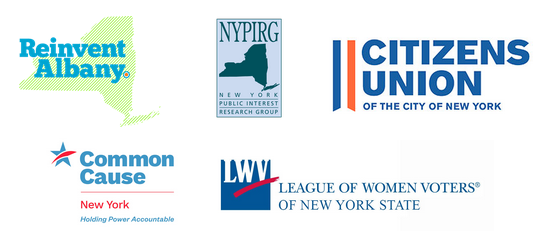Watchdogs Urge Governor to Sign 50-a Repeal Bill Immediately
Governor Andrew M. Cuomo VIA EMAIL
New York State Capitol Building
Albany, NY 12224
June 10, 2020
Re: Please Sign 50-a Repeal Bill Immediately
Dear Governor Cuomo:
Our groups urge you to sign into law S8496/A10611 (Bailey/O’Donnell) immediately without modification or chapter amendment. The bill passed the Senate and Assembly yesterday.
This legislation would repeal Civil Rights Law section 50-a and provide for public disclosure of the disciplinary records of police, probation and corrections officers. Public Officers Law Article 6 (the Freedom of Information Law, or “FOIL”) section 87 would be amended and new subdivisions 6-9 would be added to section 86 to make certain “law enforcement records” that were “created in furtherance of a law enforcement disciplinary proceeding” subject to public disclosure. Additional privacy protections would require redaction of personal information in records.
The state’s Freedom of Information Law (“FOIL”) is among New York’s most important transparency and government accountability tools. FOIL presumes that the public should have access to government records unless excepted under specified categories, such as an unwarranted invasion of personal privacy, endangering someone’s life or safety, or disclosure of trade secrets. FOIL allows New Yorkers to understand how the government they authorize and fund operates and provides the facts necessary for accountability, oversight and reform.
In 1976, the Legislature approved Civil Rights Law section 50-a, adopted to protect law enforcement personnel from having unsubstantiated complaints in their “personnel records” used to discredit them in cross examination during criminal proceedings. Through a series of court cases Civil Rights Law section 50-a has been transformed from a limited exception to the state policy favoring disclosure to a nearly impenetrable shield. In the absence of the Legislature having defined the term “personnel records” in statute, the courts have given it an expansive reading resulting in the denial of virtually all records access requests pertaining to law enforcement personnel.
For example, in Luongo v. Records Access Officer, Civilian Complaint Review Board, the Appellate Division, First Department covering Manhattan reversed a Supreme Court decision and denied access to information in the file of Daniel Pantaleo, the New York Police Department officer whose choke hold killed Eric Garner on Staten Island in July 2014. The appellate court found that the records of substantiated complaints against officer Pantaleo were exempt personnel records under Civil Rights Law section 50-a. The panel of judges in Luongo said it was constrained “to apply the law as it exists, and as interpreted by controlling Court of Appeals precedents.”
This reasoning is now being used to shield records far beyond personnel files: Some municipalities are claiming that Civil Rights Law section 50-a is a basis for police departments to withhold body cam video from public release. That the Legislature intended a limited effect for section 50-a was confirmed by the bill’s lead Senate Sponsor Frank Padavan in an interview with the Times Union in 2016:
Frank V. Padavan, a former state senator from Queens who was the chief sponsor of the legislation 40 years ago, confirmed that the sole intention of the statute, which is part of the state Civil Rights Law, was to stop private attorneys from using subpoenas to gain unfettered access to the personnel records of police officers.
As of 2020, New York and Delaware are the only two states that provide law enforcement with special carve outs from records disclosure.
With respect to the concerns that law enforcement should be shielded from release of their personnel records, this legislation would provide additional protections, including requiring the redaction of personal information such a medical history; home address, phone and cell numbers and email addresses of the individual and family.
Police officers play a critically important role in society, entrusted to keep the peace and if necessary use deadly force to protect the public. It is among the greatest delegations of responsibility that is bestowed in a democracy. Accordingly, law enforcement funding makes up a substantial part of state and local budgets borne by taxpayers. Providing public access under FOIL to law enforcement personnel records would promote trust in the individuals performing these essential functions as well as in the oversight mechanisms established to hold them accountable.
At a time of unprecedented mistrust in these public servants, rebuilding the relationship between law enforcement and the communities it serves is a paramount concern. As former Albany Police Department Chief Brendan Cox recently told theTimes Union:
“People expect law enforcement to be transparent, and the more transparent we can be the better the relationships we can build,” he said. “We live in a world where people don’t want to take you at your word, they want to see the proof of it, and I think that’s reasonable.”
We urge you to sign this important legislation immediately.
Sincerely,
Blair Horner
Executive Director
NYPIRG
John Kaehny
Executive Director
Reinvent Albany
Betsy Gotbaum
Executive Director
Citizens Union
Susan Lerner
Executive Director
Common Cause New York
Laura Ladd Bierman
Executive Director
League of Women Voters New York State

